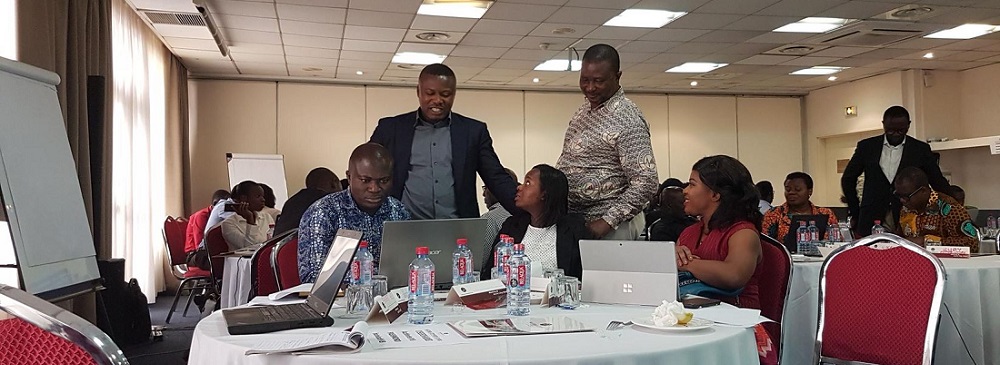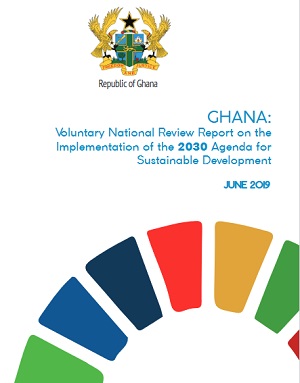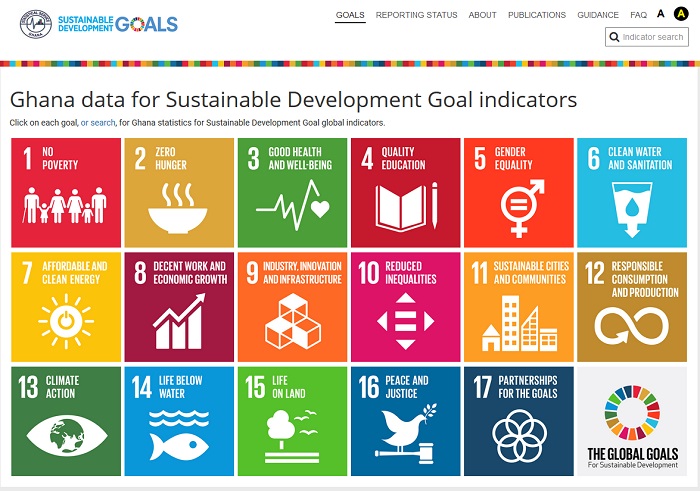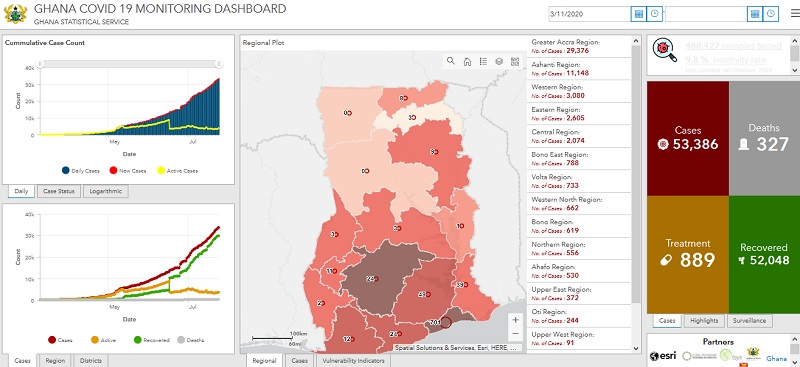Ghana
I. General on SDG monitoring set up
National SDG organizational set up
A three-tier structure—High-Level Ministerial Committee, multi-stakeholder Implementation Coordinating Committee and Technical Committee—provides oversight, coordination and implementation of the SDGs respectively, across the public and non-state sectors. Ghana audit service carries out SDGs-related assessments, while the national human rights institution ensures that rights are protected. With over 300 members, the CSOs platform on SDGs, serves as focal point for engagement between CSOs, private sector and government. To support the President’s role as the Co-Chair of the UN Secretary General’s Eminent Group of Advocates, an SDGs Advisory Unit has been established in the office of the President.
National set of SDG indicators
Ghana has developed a National Data for Sustainable Development Roadmap with three priority objectives: filling data gaps; encouraging data use; and strengthening the entire data ecosystem. Administrative data are being harnessed to generate timely and disaggregated information for monitoring. Ghana is also exploring new sources of data—geospatial and call details records from the telecommunication industry. A quality assurance framework is also being developed with CSOs, academia and the private sector to fully leverage data within the ecosystem. A national SDGs reporting platform has been launched to make disaggregated data available.
SDG reports and Voluntary National Reviews
Ghana is one of the most active countries when it comes to the SDGs, with a strong commitment by the president of Ghana. Ghana is presented its VNR at the HLPF in 2019. The Ghana Statistical Service (GSS), as the coordinating body for the National Statistics System (NSS), reviewed the global set of indicators to identify data availability and gaps in Ghana. GSS identified 62 of the SDG indicators for which data had already been produced and 63 others for which data existed in different MDAs and that needed to be collated for computation. The process also mapped the MDAs that produce these data (largely administrative data) which must be reviewed to ensure they meet the metadata requirement of the specific SDGs indicators. Based on the data available, Ghana has produced a report which established the baseline for subsequent reporting.
Overall coordination of National Statistical System
The second National Strategy for the Development of Statistics for Ghana provides strategic direction for the National Statistical System of the country for the years 2018-2022
A key milestone in the development of the NSS in Ghana has been the revision of the Statistics Act in 2019, which establishes the GSS as the central statistics producing and co-ordinating institution for the National Statistical System and to strengthen the production of quality, relevant, accurate and timely statistical information for the purpose of national development.
IV. Data availability and disaggregation
Work to make more indicators available
The latest SDGs Data Gap analysis revealed that 155 indicators data are currently available.
Work to allow more disaggregation
As of 27 Aug 2020, 83 indicators have at least one published disaggregation.
As part of the UNSD-FCDO project, UNSD provided remote training to a range of agencies within the NSS in Bangladesh on the compilation of metadata using the internationally agreed reporting template for both global and national metadata. In addition, BBS is also conducting further trainings and meetings with NSS agencies to sensitise them to the importance of national metadata. During the first half of 2021, with the support of the project, BBS intends to work with NSS partners to develop the national metadata in order to produce a published metadata handbook for the SDGs. As part of the UNSD-FCDO project, UNSD conducted a national metadata workshop in December 2018 in Accra, Ghana. The workshop was attended by about 45 staff members from Ghana Statistical Services (GSS) and various line ministries. Participants were active and engaged and gave very positive feedback on the content and their learning. GSS had a follow up metadata trainings for a broader set of Government officials. GSS has already published a number of metadata sets for the core SDG indicators on their national platform. The numbers of indicators shown is limited as there is a decision to only publish data where metadata are available. GSS has been working actively with other Government institutions to gather the needed metadata and publish when ready.
With support from the UNSD-FCDO project, GSS will be developing, adopting and starting to implement a user engagement strategy linked to SDG monitoring during the first half of 2021.
Implementation plan and activities
Proposed activities under the user engagement strategy include consultation workshops/meetings with stakeholders from the private sector, CSOs, media and government agencies, as well as a series of data literacy workshops held at the divisional level.
At the start of the COVID-19 pandemic, Ghana was the pioneer in setting up their COVID-19 Data Hub and federated data to the UN COVID-19 Data Hub. They showcased their work at the webinar organized by the project on COVID-19 data hubs. This inspired Jordan and State of Palestine to follow suit and develop their own hubs, with the project’s support.



